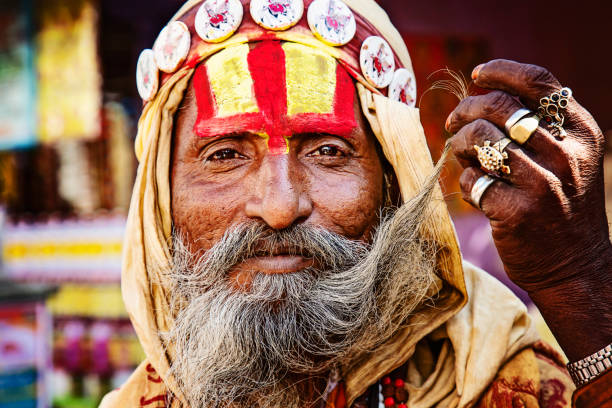“Śrīla Prabhupāda’s Kīrtana Standards,” installment 14
Shortly after Śrīla Prabhupāda sent his pioneering disciples to London, an older, white-sari’d Vaiṣṇava lady came there from Vrindāvan named Śyāma Mātājī, who met them and chanted and danced with great enthusiasm. Among other mantras, she and the followers who had come with her chanted:
Rādhe Śyām Rādhe Śyām
Hare Kṛṣṇa Hare Rām1
When Mālatī Dāsī wrote Śrīla Prabhupāda about this, Śrīla Prabhupāda replied that this Rādhā-Śyāma chanting was “not very good.” Although there was no harm in it, he said, the mantra was “not very important.” As related earlier, he told Mālatī, “There are many such common songs composed by common devotees out of sentiment,” but we should stick to what’s authorized and “always remember that Hare Krishna is the prime authorized mantra.”2
In Vrindāvan we will hear the good, the not-so-good, and the not good at all. Apart from “authorized mantras,” we will hear many concocted mantras, “common songs composed by devotees out of sentiment,” devotional cinema songs, mantras that are subtly offensive, and much else.

Bhakti Vikāsa Swami writes:
[D]evotees who come to Vrndavana think it is very transcendental when they pick up the local songs and prayers. They think that by such practice they are assimilating the culture and entering into the Vrndavana mood. Subsequently their example is carried back to other temples by devotees who don’t know any better and think that whatever they heard chanted in Vrndavana is safe to import. This was not Srila Prabhupada’s view. He did not even chant Radhe-Syama as a greeting when in Vrndavana. He would always say Hare Krsna.3
For that matter, one should not automatically assume that the way we hear kīrtana done even at our ISKCON temple in Vrindāvan (or, we might add, in Māyāpur or at any ISKCON temple) is the way Śrīla Prabhupāda wanted it. So one needs to be discriminating. For the standards Śrīla Prabhupāda gave for kīrtana at ISKCON Vrindāvan, please see the section “Core instructions from Śrīla Prabhupāda for Vrindāvan” (to be posted soon).
Notes:
1 Mālatī Devi Dāsī, personal communication, December 9, 2021.
2 Letter to Mālatī Dāsī, January 28, 1969.
3 Bhakti Vikāsa Swami, “Kirtana,” p. 9. On morning walks with Śrīla Prabhupāda in Vrindāvan, I too saw that he always responded to the greeting “Rādhe Śyāma” with “Hare Kṛṣṇa.”

You must be logged in to post a comment.